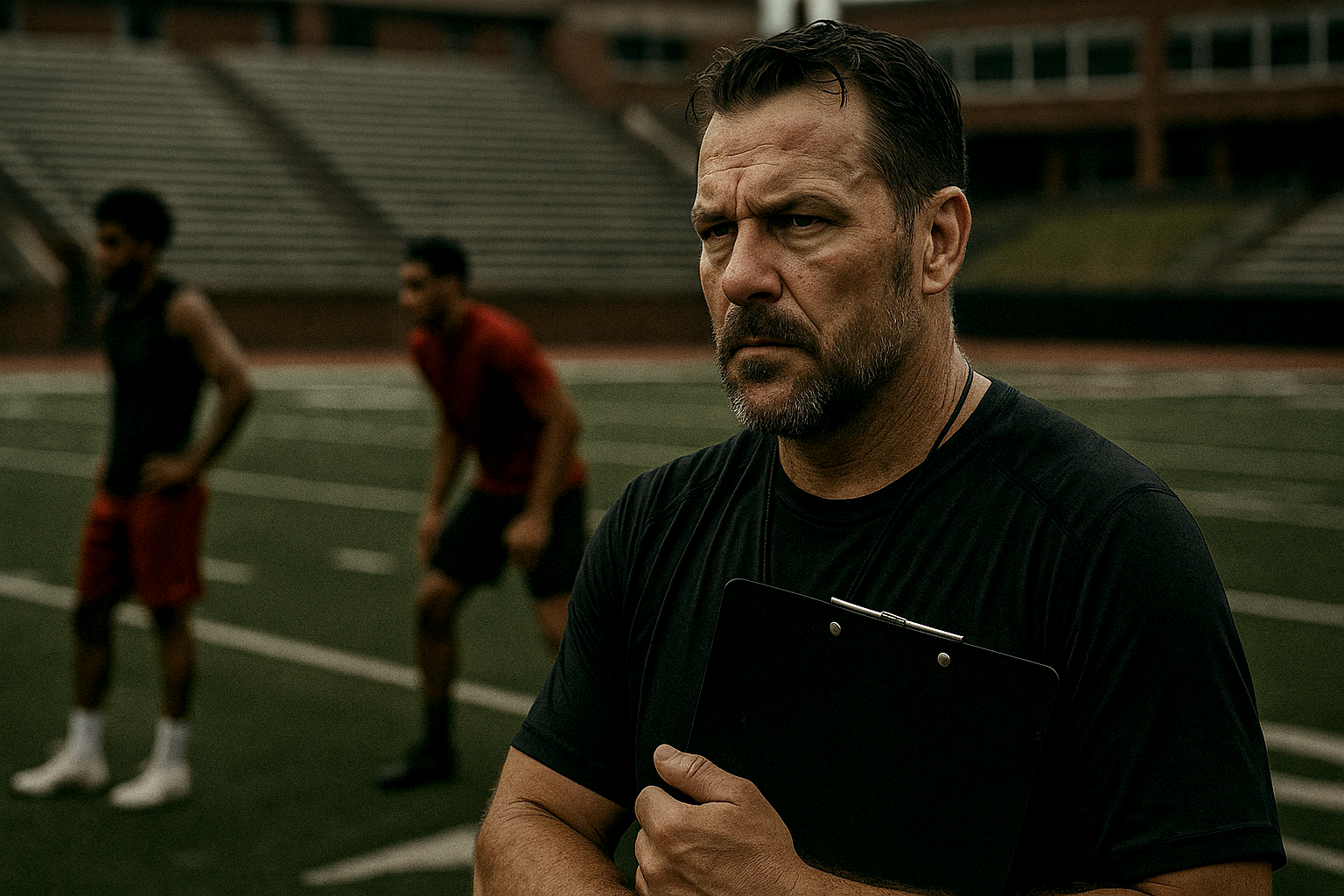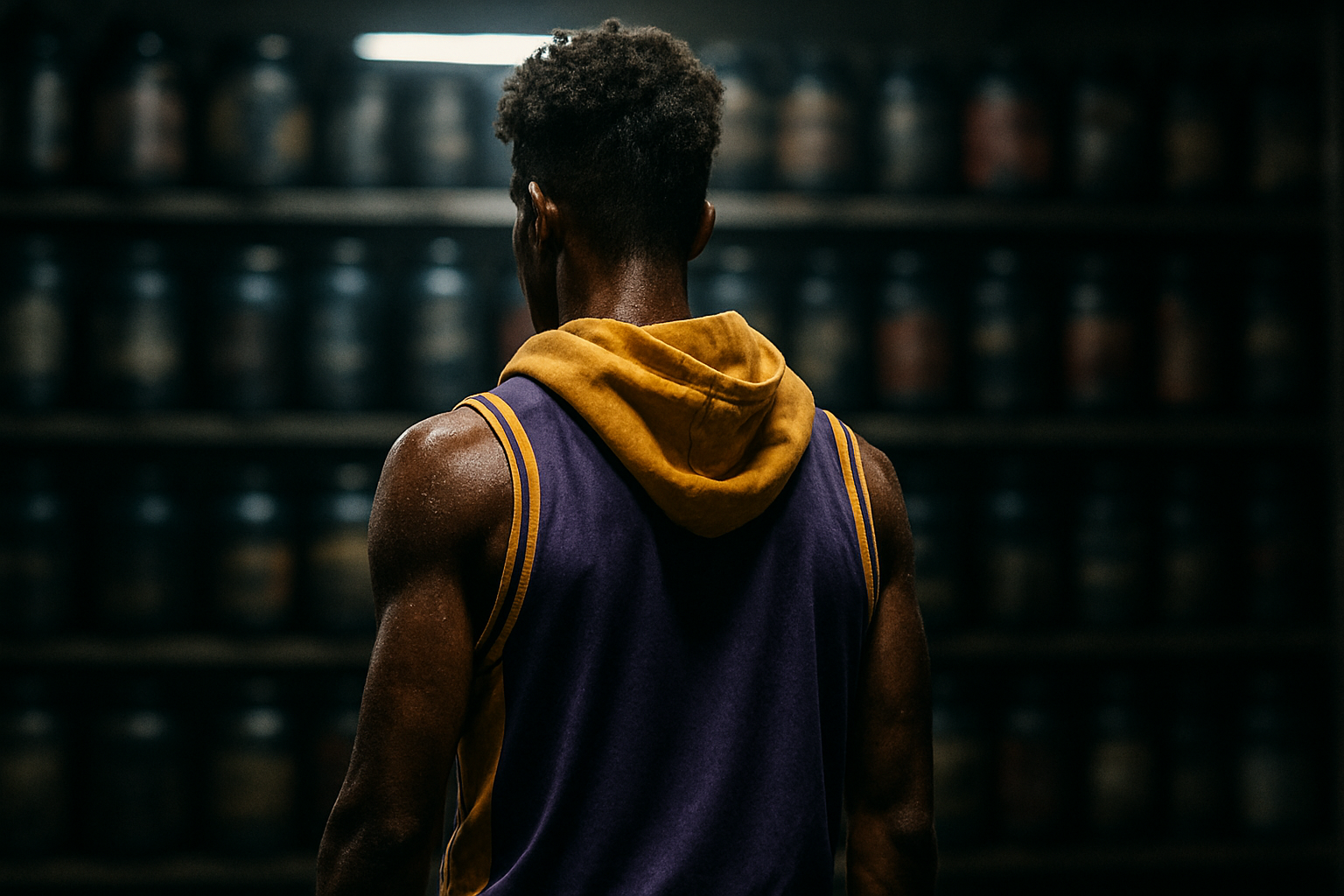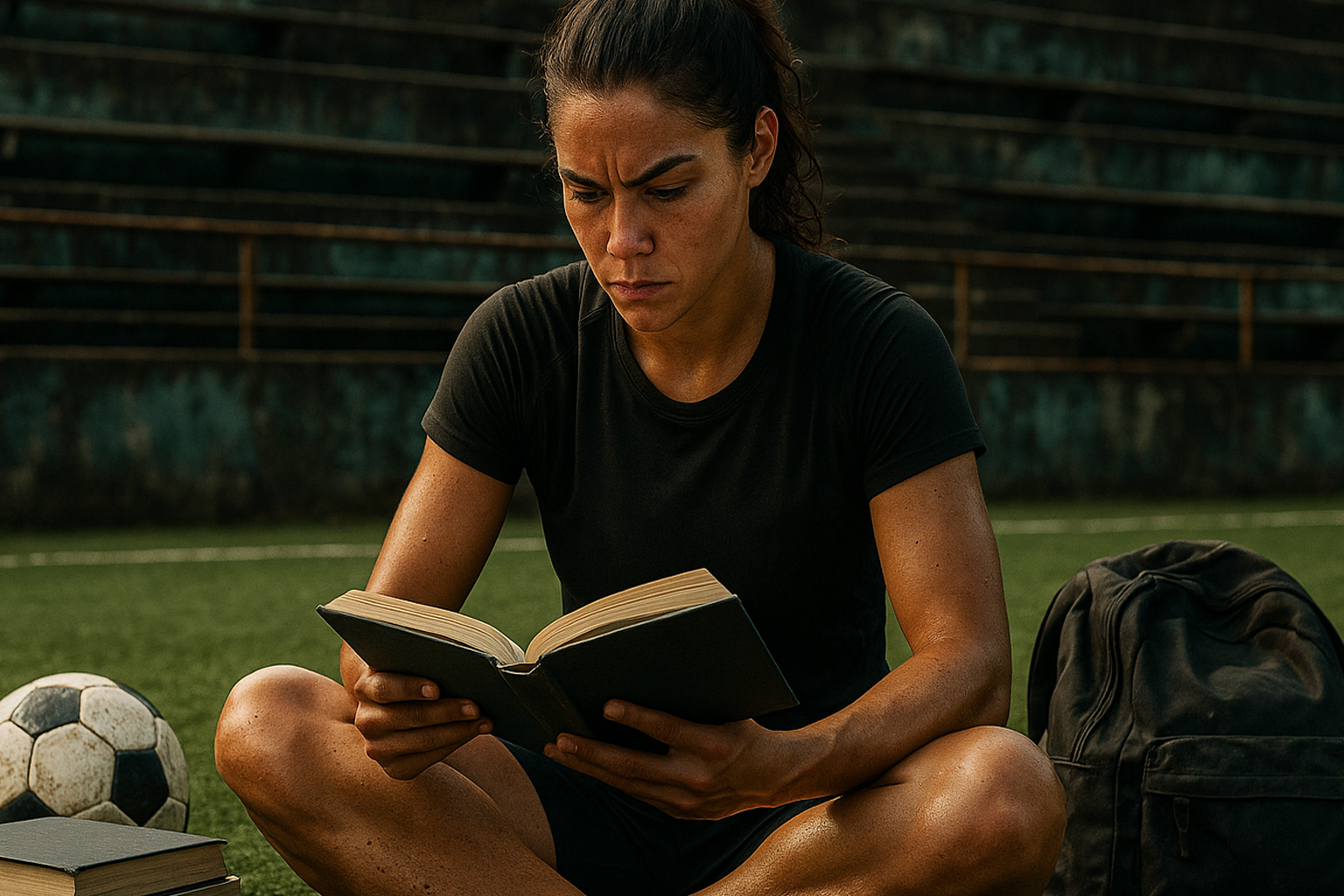What do college coaches actually look for? It’s the question every serious student-athlete asks – or should. And too often, the answers are stuck in clichés.
Some think it’s all about raw speed or power. Others hang their hopes on stats, trophies, or a slick highlight reel. But here’s the truth: recruitment runs deeper than performance alone.
Coaches aren’t just collecting talent. They’re building programs. That means they’re scouting athletes who bring more than physical ability.
- Consistency on and off the field: You can’t contribute if you can’t stay eligible. Academic discipline matters.
- Adaptability and a growth mindset: Talent is great – but how you handle feedback, adversity, and pressure is what keeps you in the game.
- Cultural fit and character: Coaches want players who raise the standard, not just the score.
Recruitment isn’t about chasing clout. It’s about proving you’re the kind of athlete who makes a team better, instead of just someone who fills out the roster.
Here are 14 essential qualities that college coaches look for in student athletes.
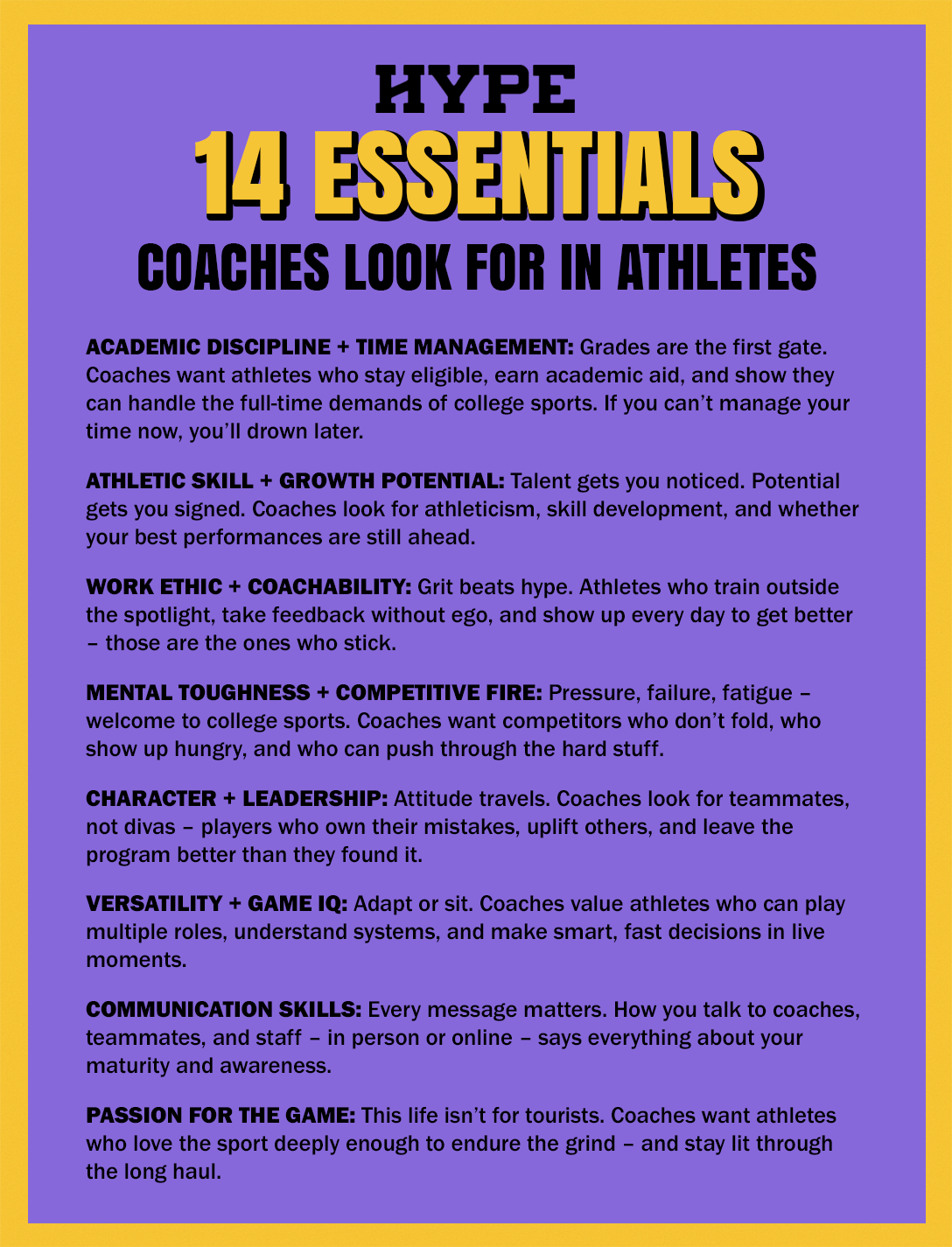
TLDR – 14 essentials that college coaches look for in student athletes:
- Academic Discipline + Time Management: Grades are the first gate. Coaches want athletes who stay eligible, earn academic aid, and show they can handle the full-time demands of college sports. If you can’t manage your time now, you’ll drown later.
- Athletic Skill + Growth Potential: Talent gets you noticed. Potential gets you signed. Coaches look for athleticism, skill development, and whether your best performances are still ahead.
- Work Ethic + Coachability: Grit beats hype. Athletes who train outside the spotlight, take feedback without ego, and show up every day to get better – those are the ones who stick.
- Mental Toughness + Competitive Fire: Pressure, failure, fatigue – welcome to college sports. Coaches want competitors who don’t fold, who show up hungry, and who can push through the hard stuff.
- Character + Leadership: Attitude travels. Coaches look for teammates, not divas – players who own their mistakes, uplift others, and leave the program better than they found it.
- Versatility + Game IQ: Adapt or sit. Coaches value athletes who can play multiple roles, understand systems, and make smart, fast decisions in live moments.
- Communication Skills: Every message matters. How you talk to coaches, teammates, and staff – in person or online – says everything about your maturity and awareness.
- Passion For The Game: This life isn’t for tourists. Coaches want athletes who love the sport deeply enough to endure the grind – and stay lit through the long haul.
1. ACADEMIC COMMITMENT
College coaches evaluate academic performance first because without eligibility, athletic talent doesn't matter. NCAA Division I requires a minimum 2.3 core course GPA, while Division II requires a 2.2. NAIA schools look for a 2.3 overall high school GPA.
The "core GPA" only counts specific courses like math, English, and science – not electives or PE. These requirements are just the minimum. Many coaches prefer students with higher grades because they:
- Reduce eligibility risks: Athletes with stronger academics rarely face eligibility issues that could sideline them mid-season
- Unlock additional funding: Academic scholarships can supplement athletic scholarships, making recruiting budgets stretch further
- Demonstrate discipline: Coaches often view academic success as evidence of time management skills and responsibility
College athletes balance demanding schedules that include practice, travel, competition, and classes. Coaches look for students who've shown they can handle this juggling act in high school.
2. ATHLETIC SKILL AND POTENTIAL
Raw talent matters, but coaches look beyond current performance to evaluate how an athlete might develop over four years. They assess sport-specific skills, physical attributes, and growth potential.
WHAT COLLEGE COACHES ASSESS – AND WHY:
Speed / Strength
- What coaches evaluate: Measurable metrics (40-yard dash, vertical jump)
- Why it matters: Position-specific requirements
Technical skills
- What coaches evaluate: Fundamentals execution
- Why it matters: Foundation for advanced development
Game IQ
- What coaches evaluate: Decision-making under pressure
- Why it matters: Adaptability to collegiate level
Athletic versatility
- What coaches evaluate: Multi-position capabilities
- Why it matters: Roster flexibility
The college recruiting process often distinguishes between raw talent (natural attributes like size and speed) and developed skill (practiced techniques like shooting form or footwork).
Coaches typically value athletes who show:
- Evidence of improvement over time
- Proper technique fundamentals
- Physical traits that match their program's style of play
- Potential to develop further in college
3. WORK ETHIC & HUSTLE
Coaches can't be with athletes 24/7, so they look for signs of self-motivation and consistent effort.
An athlete’s work ethic shows up in multiple ways:
- Practice habits: Arriving early, staying late, giving full effort in drills
- Off-season commitment: Voluntary training, skill development outside of team activities
- Effort during adversity: Continuing to hustle when tired, losing, or facing setbacks
Hustle plays – diving for loose balls, sprinting back on defense, or making effort plays when the game seems decided – often matter more to coaches than highlight-reel moments. These actions reveal character and competitive drive that statistics don't capture.
College coaches gather this information by watching games, talking to high school and club coaches, and observing athletes during camps or showcases.
4. CHARACTER & INTEGRITY
Athletic departments invest significant resources in each recruit. Coaches want athletes who will represent their program positively both on and off the field.
Athletic character evaluation happens through:
- Interactions with teammates, opponents, and officials during competition
- Communication with coaches during the recruiting process
- Feedback from teachers, counselors, and current coaches
- Behavior on social media platforms
Key character indicators coaches look for in athletes include:
- Sportsmanship: How athletes handle winning and losing
- Accountability: Taking responsibility for mistakes without blaming others
- Respect: Treating everyone from officials to opponents with consideration
- Social media presence: Posts that reflect maturity and good judgment
One bad character moment can erase interest from multiple programs. College coaches regularly share information about recruits who display concerning behavior.
5. LEADERSHIP & TEAM COLLABORATION
Teams need both vocal leaders and those who lead by example. Coaches evaluate how athletes contribute to team culture and support their teammates.
Athletic leadership appears in different forms:
- Communicating effectively during practices and games
- Supporting teammates after mistakes
- Putting team success above personal statistics
- Handling conflicts maturely
"I would tell someone to understand what you are doing is bigger than you… We have a philosophy to leave the jersey (and the program) better than you found it." explains Yale Women’s Soccer Program Head Coach Sarah Martinez.
Coaches often ask high school or club coaches specific questions about an athlete's leadership style and impact on team chemistry.
6. MENTAL TOUGHNESS & RESILIENCE
College sports present challenges beyond anything most high school athletes have experienced. Coaches look for mental toughness – the ability to perform consistently despite pressure, fatigue, or setbacks.
Signs of mental toughness include:
- Performance under pressure: Making good decisions in critical game moments
- Response to setbacks: Bouncing back quickly after mistakes or losses
- Consistency: Maintaining effort and focus regardless of circumstances
Coaches evaluate mental toughness by watching how athletes handle:
- Close games or overtime situations
- Performance slumps or mistakes
- Challenging feedback from coaches
- Injuries or physical adversity
Athletes who demonstrate resilience in high school typically adapt better to college demands.
7. COACHABILITY
Even the most talented athletes need to continue developing in college. Coaches look for players who can receive feedback, make adjustments, and grow within their system.
Coachability shows up when athletes:
- Listen attentively to instruction
- Apply feedback quickly
- Ask thoughtful questions
- Show willingness to change techniques or approaches
During recruiting visits or camps, coaches might intentionally give corrections to see how athletes respond. Those who get defensive or ignore feedback raise red flags about their development potential.
“Talent only gets you so far. Coaches want players who can grow, adapt, and respond to feedback. Show that you’re eager to learn and improve,” says former ASU Tight Ends Coach Adam Breneman.
8. COMPETITIVENESS
College athletics demand a competitive drive that extends beyond games into every practice, workout, and drill. Coaches evaluate whether athletes compete consistently regardless of the situation.
Competitive athletes typically:
- Bring intensity to practices and training sessions
- Rise to challenges against stronger opponents
- Push themselves and teammates to improve
- Handle competitive pressure without losing focus
There's a difference between healthy competition and poor sportsmanship. Coaches look for athletes who compete hard while maintaining respect for opponents, officials, and the game itself.
9. SPORTS IQ & GAME AWARENESS
Athletic ability gets recruits noticed, but game intelligence helps them succeed at the college level. Sports IQ includes understanding strategy, reading situations, and making good decisions under pressure.
Coaches evaluate the game awareness of athletes through:
- Anticipation: Recognizing plays before they develop
- Adaptability: Adjusting to different strategies or opponents
- Situational awareness: Understanding time, score, and context
Athletes with high sports IQ make fewer mental errors and require less coaching on fundamental concepts. This allows coaches to focus on advanced strategies rather than basics.
10. TIME MANAGEMENT SKILLS
College athletes face packed schedules with classes, study halls, practices, weight training, travel, and competition. Time management becomes essential for both athletic and academic success.
Coaches evaluate athletes’ time management skills through their:
- Ability to balance multiple responsibilities in high school
- Use of planning tools like calendars or apps
- Consistency in meeting deadlines
- Adherence to structured routines
Athletes who struggle with time management in high school often face greater challenges in college, potentially affecting both their grades and athletic performance.
11. COMMUNICATION & COACH INTERACTION
How athletes communicate during recruitment often predicts how they'll communicate as team members. Coaches evaluate both the content and style of communication.
Athletes can show they effectively communicate through:
- Professional emails: Clear, personalized messages with relevant information
- Thoughtful questions: Inquiries that show research about the program
- In-person interaction: Engaged conversation during visits or calls
- Responsive follow-up: Timely replies to coach outreach
Coaches see the following as communication red flags in athletes:
- Generic mass emails to multiple coaches
- Poor grammar or unprofessional language
- Letting parents handle all communication
- One-word responses or lack of engagement
12. ADAPTABILITY TO DIFFERENT ROLES
College teams have limited roster spots. Athletes who can contribute in multiple ways become more valuable during the recruiting process.
Athletic adaptability coaches look for include:
- Position flexibility: Ability to play different positions
- System adaptability: Adjusting to different styles of play
- Role acceptance: Willingness to contribute however the team needs
Coaches often ask about past experiences with changing roles or positions. Athletes who have successfully adapted before are likely to do so again in college.
“We have good players and then we have game-ready players,” says former WVU Defensive Line Coach Bill Kirelawich. “A guy can be good, but he may not be ready to be put in the game just yet in a rotation. If you think of a baseball rotation, it’s the same thing. Every fourth or fifth day, you are going to pitch. You have x amount of guys that you are going to rotate in and out of the game so you have a number of guys that can play different positions.”
13. PASSION & LOVE FOR THE SPORT
College athletics require significant time and energy. Athletes who genuinely love their sport typically sustain motivation better through challenges and setbacks.
Coaches identify passion in athletes through:
- Knowledge of the game beyond basics
- Voluntary extra work outside of required practices
- Engagement with the sport (watching games, following teams)
- Enthusiasm during discussions about the sport
Passion doesn't always mean being the loudest or most outwardly enthusiastic. It often shows up in consistent habits, curiosity about improving, and resilience through difficult periods.
14. POTENTIAL FOR GROWTH
Some athletes peak in high school, while others continue developing through college. Coaches evaluate growth potential based on:
- Physical maturation: Body type, growth patterns, and development runway
- Skill acquisition rate: How quickly athletes learn new techniques
- Mindset indicators: Growth-oriented responses to challenges
Late bloomers – athletes who haven't reached their physical or mental peaks – often present valuable recruiting opportunities. Coaches look for signs that an athlete's best performances are still ahead.
HOW TO GET THE ATTENTION OF D1 COACHES
Getting noticed by Division I coaches requires strategic effort. The most effective approaches include the following:
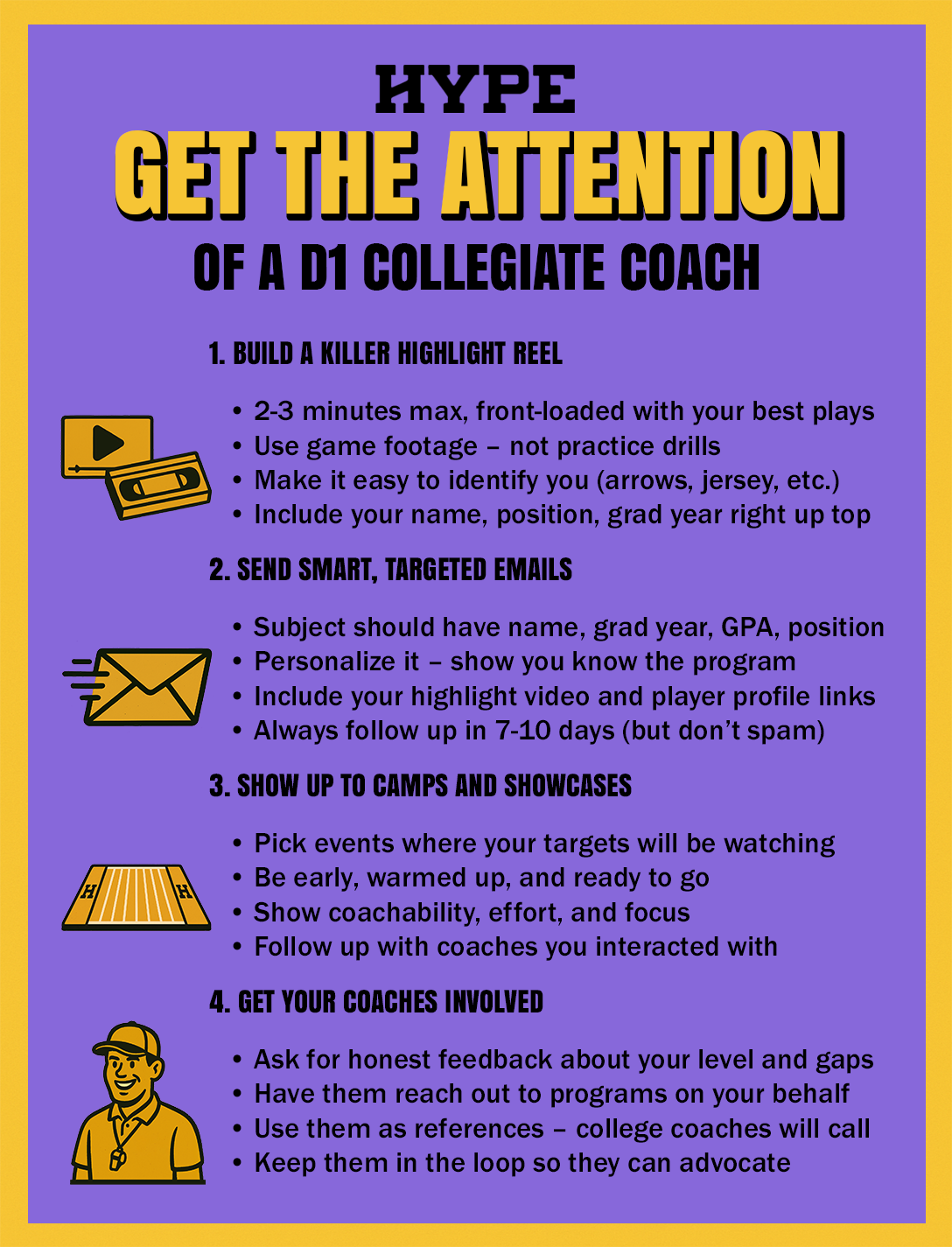
TLDR – How student athletes can get the attention of D1 collegiate coaches
1. Build a killer highlight reel
- 2-3 minutes max, front-loaded with your best plays
- Use game footage – not practice drills
- Make it easy to identify you (arrows, jersey number, etc.)
- Include your name, position, grad year right up top
2. Send smart, targeted emails
- Subject line should include your name, grad year, GPA, position
- Personalize it – show you know the program
- Include your highlight video and player profile links
- Always follow up in 7-10 days (but don’t spam)
3. Show up to camps and showcases
- Pick events where your target schools will be watching
- Be early, warmed up, and ready to go
- Show coachability, effort, and focus
- Follow up with coaches you interacted with
4. Get your coaches involved
- Ask for honest feedback about your level and gaps
- Have them reach out to programs on your behalf
- Use them as references – college coaches will call
- Keep them in the recruitment loop so they can advocate
1. CREATE HIGHLIGHT VIDEOS
Effective highlight videos run 2-3 minutes and showcase your best plays in game situations. Begin with basic information (name, position, graduation year) and focus on clear, recent footage that demonstrates your skills.
- Keep it concise: Coaches decide within 30-60 seconds if they’ll watch more
- Show game footage: Practice clips are less valuable than competitive situations
- Make yourself identifiable: Use arrows, circles, or jersey numbers to stand out
- Start with your best plays: Put attention-grabbing moments first
2. PROACTIVE EMAIL OUTREACH
Email remains the primary way athletes introduce themselves to college coaches.
Effective emails to college coaches include:
- Putting your name, grad year, position, GPA in the subject line
- Mention specific reasons for interest in their program
- Provide links to highlight videos and athletic profiles
- Close with clear contact information
Follow up after 7-10 days if you don't receive a response, but avoid excessive messaging that could seem desperate or disrespectful. Keep in mind the strict communication timelines coaches in organizations like the NCAA must adhere to, as well.
3. ATTEND CAMPS & SHOWCASES
College camps provide direct exposure to coaching staff. Research which camps are attended by coaches from your target schools and prepare thoroughly:
- Arrive early and warm up properly
- Demonstrate coachability during instruction
- Show consistent effort throughout all activities
- Follow up with coaches afterward
4. SEEK FEEDBACK FROM MENTORS
Current coaches can provide valuable perspective on your recruiting potential and areas for improvement. They can also serve as references when college coaches call to learn more about you. Make sure to keep them in the loop regarding your recruitment progress so they can step in and advocate when it makes sense.
Ask your current coaches and athletic mentors specific questions like:
- "What skills should I focus on improving?"
- "What level do you think I could play at in college?"
- "Would you be willing to contact some college coaches on my behalf?"
WHERE TO GO NEXT FOR COLLEGE RECRUITING
Understanding the recruiting timeline helps athletes stay on track. The process typically follows this progression:
- Freshman/Sophomore years: Focus on academics, skill development, and creating athletic profiles
- Junior year: Begin outreach to college coaches (after June 15 for most Division I and II sports)
- Senior year: Take official visits, receive offers, and make decisions
NCAA academic eligibility requirements include completing specific core courses with minimum GPA requirements. The "10/7 Rule" for Division I requires 10 core courses completed before senior year.
RECRUITMENT ISN’T ABOUT PERFECTION
At the end of the day, getting recruited isn’t about being perfect – it’s about being prepared. Coaches aren’t just watching your game film; they’re watching how you carry yourself, how you respond to pressure, how you treat people, how you manage your time, and how much room you have left to grow. Every action – on the field, in the classroom, in conversation – is a piece of your resume.
So if you’re serious about playing at the next level, don’t just ask what coaches want. Ask what kind of athlete, student, and teammate you’re becoming. Then build that every day.
FREQUENTLY ASKED QUESTIONS ON RECRUITING
HOW DO COACHES EVALUATE ATHLETES FROM SMALL HIGH SCHOOLS WITH LIMITED EXPOSURE?
College coaches use a combination of film analysis, camp evaluations, and conversations with high school coaches to identify talented athletes regardless of school size, focusing more on individual skills and potential than team success or competition level.
HOW CAN STUDENT-ATHLETES EFFECTIVELY USE SOCIAL MEDIA DURING RECRUITMENT?
Athletes can showcase their training highlights, academic achievements, and character through consistent, positive social media content while avoiding controversial posts – understanding that coaches regularly review social media profiles to evaluate judgment and communication skills.
SHOULD ATHLETES SPECIALIZE IN ONE SPORT OR PARTICIPATE IN MULTIPLE SPORTS?
Many college coaches prefer multi-sport athletes because they demonstrate versatility, develop different skill sets, and show competitive drive across various contexts, though the ideal timing for specialization depends on the specific sport and individual development path.
